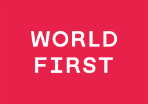Daniel is Founder and CEO and has 20 years of experience in the international finance world focusing on cross-border payments, technology and the property sectors. Daniel is widely quoted as an expert within the money transfer industry including by The Economist, The Wall Street Journal, Reuters, CNBC and Bloomberg. Daniel is passionate about helping consumers and businesses find the best and most efficient ways to transfer money internationally.
Frequently asked questions
How we calculate the savings
Contents
Summary
Switzerland’s money transfer regulations
Switzerland’s monetary and regulatory authorities
Swiss taxation and investment incentives
Switzerland’s economic background
Currency
Summary
Sending money to Switzerland and transferring money from Switzerland is relatively unrestricted and benefits from the country’s open, stable and transparent financial environment. Despite the central bank abandoning the minimum level against the euro in mid January 2015, and the likely greater volatility of the currency, there were no changes to the ease with which the franc can be bought or sold.
Switzerland’s money transfer regulations
On January 15, the Swiss National Bank (SNB) surprised international markets by scrapping the minimum exchange rate of 1.20 Swiss francs (CHF) per euro it adopted in 2011, Intended to limit exchange rate volatility, the cap was abandoned on the basis that it was ‘no longer justified’, with the SNB finding it increasingly expensive to defend this level against rising demand for the franc as a safe haven currency. As a result of the sudden policy change, the franc soared against the US dollar and the euro, ending the day 16% and 13% stronger respectively. The central bank effectively adopted a zero-interest rate policy in the years following the onset of the global economic downturn, which helped to bolster the economy and keep the franc from appreciating excessively, but in December 2014 introduced negative interest rates to discourage inflows. Rates were cut further on the same day as the cap was dropped. The cap had kept the franc artificially weak against the euro and the dollar, but the new strength will add considerable pressure to the country's competitiveness.
The ongoing economic and sovereign debt weakness in several eurozone economies have driven up demand for the Swiss franc as a stable, “safe haven” currency. Such inflows will likely continue given the prospect of quantitative easing by the European Central Bank that will weigh further on the euro, as well as prolonged economic crisis in Russia supporting demand for safe haven assets such as the franc.
As with most currencies, the Swiss franc is most often exchanged against the US dollar (USD) and the euro (EUR). According to the Bank for International Settlements’ triennial central bank review, total exchanges between the Swiss franc and the USD reached US$184bn per day in April 2013, followed by US$71bn against the euro.
Switzerland’s monetary and regulatory authorities
The SNB conducts national monetary policy and monitors the stability of the Swiss franc and of the financial system as a whole. The Swiss Federal Banking Commission, the Federal Office of Private Insurance, and the Anti-Money Laundering Control Authority were merged in 2009 to create a single, independent public institution, the Swiss Financial Market Supervisory Authority (FINMA).
FINMA directly oversees the health of the financial system and ensures that companies and institutions comply with financial regulation. FINMA also seeks to ensure consumer protection and the proper function of banking, insurance and securities markets. The execution of financial transfers is overseen by the Swiss Interbank Clearing (SIC) payment system.
Swiss taxation and investment incentives
Switzerland has come under considerable pressure from its European neighbours to reform its (in)famous banking secrecy laws. By 2014, the country had dramatically increased transparency, agreeing to share tax information with foreign governments. Tax treaties have been re-negotiated with a number of countries, opening up a wide array of assets for taxation by their home governments. However, as of September 2014, negotiations with several European countries were still unresolved, including key markets such as France, Italy and Spain. Tax agreement conditions vary from country to country, and we recommend consulting the relevant bilateral treaty for further information.
The federal government gives considerable leeway to its 26 cantons to set tax standards and other fiscal incentives; corporate and personal income tax rates vary significantly in different areas, and some have adopted aggressive terms in order to attract investment and migration. Zurich, the country’s financial hub often used as a yardstick for financial conditions, had a corporate tax rate of roughly 25% in 2014, including municipal, cantonal and federal rates.
Switzerland’s economic background
Switzerland is a leading destination for investment and foreign exchange trading, largely thanks to its highly developed financial services sector. It has one of the highest levels of per capita GDP and income in the world. Switzerland’s banking secrecy laws have long been made it a financial hub on the European continent, although these are changing. The World Economic Forum’s 2013 Global Competitiveness Report named Switzerland the most competitive economy in the world. A stronger franc in 2015 will add considerable pressure, however, and will dampen GDP growth prospects as exports suffer and companies cut back on wages and jobs as a result.
Switzerland is not a member of the European Union (EU) and has a distinct national currency, the Swiss franc. However, its economic performance is directly linked to that of the eurozone; Switzerland’s financial services industry is heavily reliant on foreign clients and the EU absorbs roughly half of Switzerland’s exports each year.
Currency
The national currency, the Swiss franc, is issued and distributed by the Swiss National Bank. Bills are denominated in values of 10, 20, 50, 100, 200 and 1,000 francs, and coins in values of 5, 10, 20 and 50 cents (rappen) and 1, 2 and 5 francs.



















